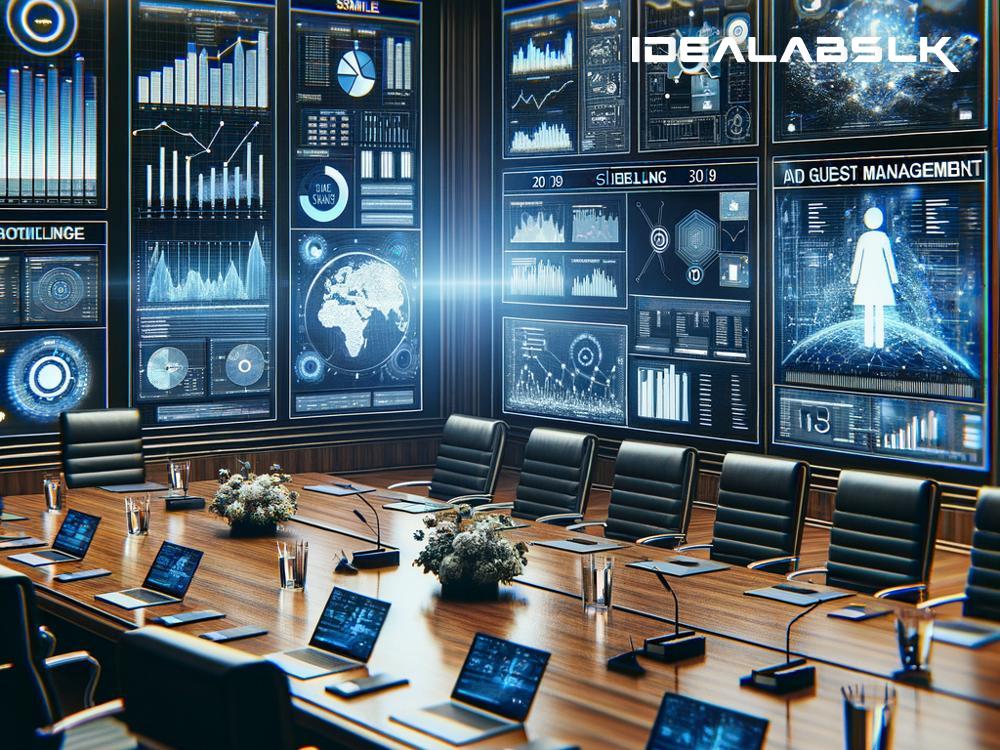Unlocking the Future of Event Planning with Predictive AI
The world of event planning is undergoing a revolution, thanks to the exciting advances in Predictive AI. This futuristic-sounding technology might seem like it belongs in science fiction, yet it's very much a reality and is transforming how events are conceived, planned, and executed. But what exactly is Predictive AI, and how does it weave its magic in event planning? Let's dive in and simplify this complex technology into something everyone can understand.
Predictive AI: A Quick Overview
At its core, Predictive AI involves using algorithms and machine learning to analyze data and predict future outcomes. It's like having a crystal ball but powered by data and mathematics rather than magic. This technology can forecast trends, behaviors, and patterns by sifting through vast amounts of historical data. In the context of event planning, this means being able to anticipate everything from attendee preferences to potential challenges, ensuring the event is a resounding success.
The Magic Behind Predictive AI in Event Planning
Here’s how Predictive AI works its magic in the realm of event planning:
-
Data Gathering: Everything begins with data. This could include information on previous events, attendee feedback, social media trends, and even weather forecasts. Predictive AI systems start by absorbing this data, providing a foundation for their analysis.
-
Pattern Recognition: By analyzing the gathered data, AI algorithms identify patterns and trends. For example, it might notice that tech conferences held in spring have higher attendance or that interactive workshops receive more positive feedback than traditional lectures.
-
Predictive Modeling: Armed with these insights, the AI then creates predictive models to forecast various aspects of future events. This could range from predicting the optimal date and location for an event to forecasting attendee turnout and their preferences.
-
Optimization: Perhaps the most exciting part of Predictive AI is its ability to recommend actions to optimize the event planning process. Based on its predictions, it can suggest the best themes, speakers, and even marketing strategies to ensure the event meets its objectives.
Now that we have a basic understanding of how Predictive AI operates in event planning, let's simplify it further with an example.
Predictive AI in Action: A Case Study
Imagine you're organizing a music festival. In the past, planning would involve a lot of guesswork: Which artists should you book? What’s the ideal venue size? Which weekend should you choose to maximize attendance? Enter Predictive AI.
By feeding past festival data, social media trends, and even weather patterns into the AI system, you can drastically reduce uncertainty. The AI might analyze past attendance records against weather conditions and conclude that late spring festivals with a mix of indie and electronic acts sell out 75% faster. It might also predict that adding an interactive art installation could increase attendee engagement based on social media sentiment analysis.
With these insights, you can tailor your festival in a way that not only meets but exceeds attendee expectations, ensuring a memorable and profitable event.
The Benefits of Using Predictive AI in Event Planning
The advantages of leveraging Predictive AI in event planning are manifold:
-
Enhanced Personalization: By understanding attendee preferences and behaviors, organizers can create highly personalized experiences, boosting satisfaction and loyalty.
-
Improved Efficiency: Predictive AI can automate and optimize various aspects of event planning, from scheduling to marketing, saving time and resources.
-
Risk Mitigation: By forecasting potential issues, from low attendee turnout to logistical challenges, planners can proactively address them before they become problems.
-
Data-Driven Decisions: Gone are the days of relying solely on intuition. With Predictive AI, every decision is backed by data, reducing the risk of costly mistakes.
The Future is Bright (and Predictable)
As technology advances, the capabilities of Predictive AI in event planning will only grow. Imagine a future where AI not only predicts the success of events but also autonomously makes adjustments in real-time to ensure their success. While we're not quite there yet, the rapid pace of innovation suggests it's not as far off as we might think.
In conclusion, Predictive AI is transforming event planning from an art to a science. By harnessing the power of data and predictive analytics, event planners can foresee the future, making every event not just an occasion but an unforgettable experience. The future of event planning isn't just bright; thanks to Predictive AI, it's also increasingly predictable.

